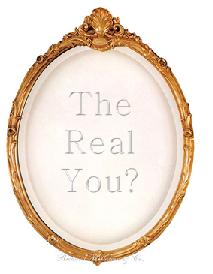Posted by Umm Sahl in Miscellaneous | 0 Comments
Look in the Mirror

By Sadullah Khan
Cars carry a message, “Objects in mirror are closer than they appear”. We need a message on our personal mirrors that says, “Your image may not be as it appears; look within yourself for true reflection”.
Who am l?
When I look in the mirror, who is that looking back? Am I who I appear to be? Do I try to mask the interior of my personhood by decorating the exterior with designer labels. Have I become so accustomed to give an impression of other than my true self that I have begun to believe and accept the false image I portray? Each one of us should seriously reflect on this.
The need for maturity and integrity
Integrity is about being yourself at your best, being honest, being honorable and being true to the noblest of universal values. Maturity entails taking responsibility for your own life, taking rational decisions that reflect the best that you can offer. The touchstone of maturity, however, is personal integrity; applying basic values to the decision-making process and thus living in a way that allows your personality to be consistently good. In reality, integrity is about moral maturity; what it is to think and act in a way that reflects the full stature of a rational human being.
Life shaped by choices
Our lives are continually being shaped by the choices we make and the convictions and values that underlie them. In this sense, our lives are like works of art, in progress. We can take the material of life and either react to it in a passive way, always remaining life’s victim, (hiding behind a mask); or take it and use it creatively, becoming the architect of one’s life and a participant in shaping one’s destiny and in designing one’s true personality.
Reach your full potential The holy Prophet is reported to have said that Allah has prescribed goodness and excellence in all that you do. In relation to evolving human potential and developing personality, this statement motivates a person to utilize one’s life skills in the most progressive and pro-active manner; demanding the demonstration of dignity with pride, courage with conviction, patience with perseverance, power with mercy, authority with justice, duty with commitment, principle with wisdom, freedom with discipline and honor with compassion.
Let your imprint be a heart-print
We may try to impress people by leaving behind a particular impression of our self or imprinting an image of some kind. We leave behind various kinds of imprints throughout our lives, imprints that makes distinct our uniqueness. Each one of us have swirly lines on the tips of our fingers that provide a map of our individuality called fingerprints. The footprints we leave behind temporarily indicate the direction from which we have come or in which we are going. Voiceprints are somewhat unique to individuals and can even be identified by little babies if the voice belongs to one close to the child.
All these prints are some form of physical manifestations of who you are. These can be obscured, wiped away or smudged; but there is another kind of print that is never wiped away; it is the imprint you leave when you positively affect the life of another person: heart-prints. Unlike your fingerprints, footprints and voiceprints, with heart-prints there are no lines, no sole marks and no sound wave peaks. What you witness is the impact and effect you can have on the lives of those you touch. You might see a smile in return for a greeting or a tear when sharing an emotion or feel the warmth of a hug in return for your consolation. Heart-prints leave indelible imprints, ones that sustain and enrich life for years to come.
True You
The only way to leave true heart-prints is to be uniquely you and to share with others the essence of who you are at your best; no masks, no charades; just the bona fide you, uniquely you, you-nique.
Sadullah Khan is the Director of Islamic Center of Irvine. He has presented lectures on Islamic Civilization at California State University at Dominguez Hills. He is a frequent lecturer for the Academy of Judaic, Christian and Islamic Studies at UCLA (University of California, Los Angeles). He is also an advisor to the Chancellor’s Committee on Religion Ethics and Values at UCLA and serves as Director of Muslim Affairs at USC (University of Southern California).
Source: www.islamicity.com

 Umm Sahl, your sister in Islam, a wife and mother of 3 beautiful blessed babies
Umm Sahl, your sister in Islam, a wife and mother of 3 beautiful blessed babies